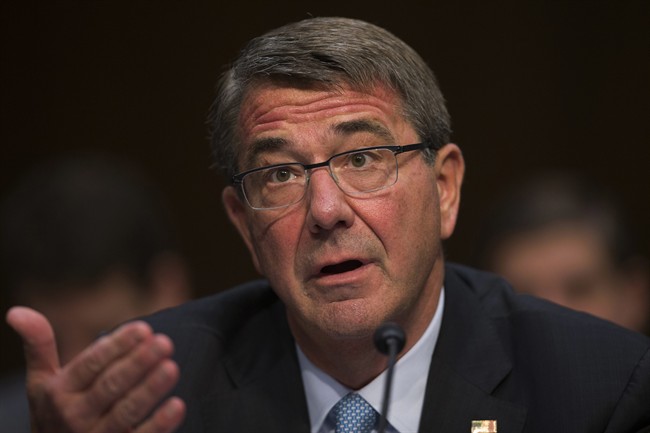WASHINGTON – The Pentagon announced Thursday that transgender people will be allowed to serve openly in the U.S. military, ending one of the last bans on service in the armed forces.

Saying it’s the right thing to do, Defence Secretary Ash Carter laid out a yearlong implementation plan declaring that “Americans who want to serve and can meet our standards should be afforded the opportunity to compete to do so.”
Speaking at a Pentagon press conference, Carter said, “Our mission is to defend this country, and we don’t want barriers unrelated to a person’s qualification to serve preventing us from recruiting or retaining the soldier, sailor, airman, or Marine who can best accomplish the mission.”
Under the new policy, by Oct. 1, transgender troops should be able to receive medical care and begin formally changing their gender identifications in the Pentagon’s personnel system.
And a year from now, he said, the military services will begin allowing transgender individuals to enlist, as long as they meet the required standards and have been stable in their identified gender for 18 months.
Carter’s announcement comes despite concerns from senior military leaders that the department is moving too fast and that more time is needed to work through the changes. He said he discussed the plans extensively with his military leaders, and based on their recommendations, he made adjustments to the timeline. He said he has been told that the services now support the timeline.
Last July, Carter said he intended to rescind the ban, calling it outdated. He has long argued that the military must be more inclusive to bring in the best and brightest.
At the time, he ordered a six-month study to include extensive medical and scientific research and discussions with other nations and companies with experience in the process. He extended the study because the military wanted more time. Officials said he wanted to insure there was no impact on military readiness, but over time, he became frustrated with the slow progress.

Comments